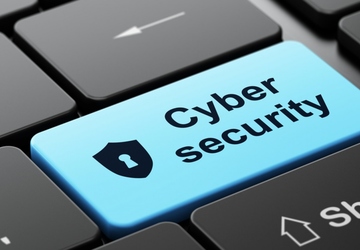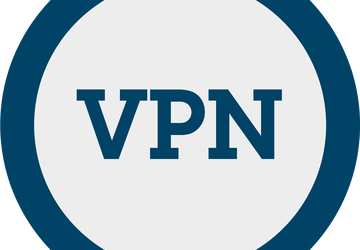In today's digital age, cybersecurity is not just a buzzword, it's a way of life. Think of it like locking your door at night. You wouldn't leave it open to let anyone in, would you? Likewise, in the online world, we must take steps to protect ourselves. But where do we start? Let’s dive into some simple yet effective tips for developing a cybersecurity mindset.
Learn more about the basics

Understanding the basics of any topic is crucial, and cybersecurity is no exception. Think of the digital world as a vast ocean filled with wonder and danger. Just as sailors must be familiar with currents and marine life, they must also be familiar with digital dangers. For example, phishing emails are like cleverly disguised bait designed to snare unsuspecting prey.
Instead, malware is a silent predator lurking in the shadows, waiting for an opportunity to strike. And ransomware? It is a digital kidnapper that holds your valuable data hostage. By identifying these adversaries and their sophisticated tactics, you can arm yourself with knowledge, the most powerful weapon in your cybersecurity arsenal.
Stay alert for updates
In the ever-changing cybersecurity landscape, complacency is your worst enemy. Cyber threats are like shapeshifters, constantly changing and adapting. Just like you wouldn't wear last season's clothes to a fashion event, relying on outdated cybersecurity knowledge leaves you vulnerable. Develop the habit of continuous learning. Engage with cybersecurity experts through blogs, delve into the latest research, and attend educational webinars. This proactive approach ensures you are not caught off guard by emerging threats and can recalibrate your defenses accordingly.
Strengthen your digital fortress with strong passwords
Your online accounts are like treasure chests filled with valuable information and memories. Would you lock such a box with a thin lock? of course not! But many people unintentionally use weak passwords like "123456" or "password." Treat each account as a unique entity worthy of comprehensive protection.
Create complex passwords, mixing letters, numbers and symbols, and leave the burden of remembering them to a trusted password manager. Extend your defenses with two-factor authentication - Digital Guard guards and ensures only authorized personnel have access.
Browse the Internet with caution
The vast internet is filled with tempting offers, fascinating links and fascinating stories. However, not all that glitters is gold. An enticing discount offer or urgent email can be a wolf in sheep's clothing, leading you into a cyber trap. Develop a habit of doubt. Check the sender details, hover over links to preview the destination, and trust your instincts. When in doubt, stop and think. It’s a digital jungle, and a moment’s miscalculation can spell trouble.
Protect your digital footprint
In the modern era, everything you do online leaves a unique, revealing mark on your online presence, similar to your fingerprint. Every piece of information shared paints a picture and could make you a target. Be careful when disclosing information. Do not post sensitive information such as personal addresses, financial information, or confidential photos in public forums. While social media is a platform for engagement, it can also be a hunting ground for cybercriminals. Please be careful, consider friend requests, and remember that when it comes to online security, caution is often the better part of courage.
Update your software regularly
Think of software updates as basic maintenance of your digital life. Just like your car needs regular maintenance to keep running smoothly, your equipment needs updates to run efficiently and safely. These updates add new features, fix bugs, and resolve vulnerabilities. Cybercriminals are constantly finding new ways to exploit software vulnerabilities. Therefore, staying up to date with the latest updates is your best defense. Set your device to automatically update whenever possible, or schedule regular manual checks to ensure you don't miss important updates.
Use a virtual private network (VPN)

You need a VPN stealth shell now more than ever as it becomes increasingly difficult to effectively hide your online presence. A VPN allows you to send and receive information through encrypted tunnels that hide the intersection of tunnels. As a user, you need it, especially when you're using unsecured public WiFi (which is the case most of the time). It’s not that they are bad, but due to weak security any cybercriminal can intercept or access the information you share.
To avoid this as much as possible, a VPN will help you maintain an encrypted channel and protect your data. To others, everything you do comes from an anonymous source and is therefore useless to prying eyes. It's like browsing the digital world incognito, protecting your privacy every step of the way.
Back up your data
If you're not careful, you can lose your data at any time, such as your memories, photos, work data, etc., just because you don't have a backup. Losses can be caused by hardware failure, your computer being attacked by ransomware, etc. As a regular user, you don't want to experience this kind of loss, and it's a nightmare.
Therefore, it is extremely important for you to re-migrate to the cloud, whether it is physical or digital. The backup frequency may change every few days or weeks, but you need to stay consistent while retaining data points for recovery if needed. This may be inconvenient at first, but over time you can protect your data for a more secure future.
Be suspicious of unsolicited messages
The digital environment is rife with deceptions designed to trick unsuspecting people into revealing sensitive information or downloading malware. Unwanted messages are often disguised as legitimate communications, and cybercriminals use these communications to extract as much critical information as possible, potentially gaining more than just information. Whether it's a tempting offer, a dire warning, or a seemingly harmless request, always treat unwanted messages with a healthy dose of skepticism. Verify the authenticity of the sender through trusted channels and never click on suspicious links or attachments. By remaining cautious and vigilant, you can avoid falling victim to phishing scams and other malicious activities.
Educate others
Knowledge is a powerful tool in the fight against cyber threats, and sharing this knowledge can have a profound impact and empower others to adopt safer online practices. Not only do employees need digital security and protection training; Your family also needs regular education. Share information resources, practical tips and real-life examples to illustrate the risks and consequences of neglecting online safety. By fostering a culture of awareness and vigilance in your community, you can create a safer digital environment for everyone. Remember, cybersecurity is a collective responsibility, and by working together, we can build a safer and more resilient online world for future generations.
Conclusion
Developing a cybersecurity mindset doesn’t mean becoming a technical guru overnight. It's about taking a proactive approach to staying safe online, similar to how you would do it in the real world. If you know the basics, stay informed, develop good habits, think before you click, and use caution when sharing information, you'll be able to navigate the digital landscape with confidence.



